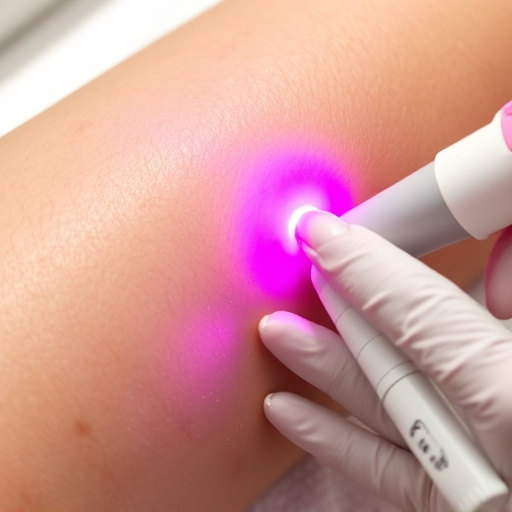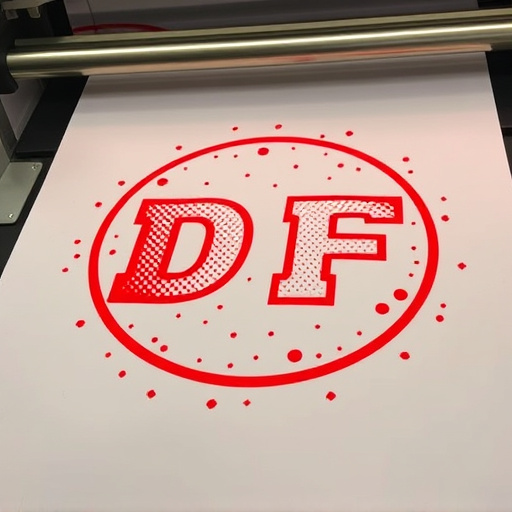Psoriasis is a chronic autoimmune condition marked by rapid skin cell production leading to plaques, itching, and discomfort. Beyond physical symptoms, it negatively impacts quality of life, self-esteem, and psychological well-being. Deep Penetration Technology (DPT), a revolutionary non-invasive approach, effectively manages psoriasis by penetrating deep into the skin to reduce inflammation, slow skin cell production, stimulate collagen synthesis, and improve texture. DPT enhances penetration of topical medications and enables aesthetic treatments, providing comprehensive care without traditional systemic or invasive side effects. Future developments aim for more precise, targeted therapies combining DPT with innovative techniques like light therapy and topical biologics for personalized psoriasis skin therapy.
Psoriasis, a chronic autoimmune condition, affects millions globally, causing rapid skin cell growth and leading to unsightly patches. Traditional treatments offer limited relief, sparking interest in innovative solutions. Deep penetration technology emerges as a revolutionary approach, offering targeted delivery of therapeutic agents deep into the dermis. This article explores psoriasis skin therapy with this advanced technology, its benefits, process, and promising future prospects for improved management and enhanced patient quality of life.
- Understanding Psoriasis and Its Impact on Skin
- Deep Penetration Technology: A Revolutionary Approach to Psoriasis Treatment
- Benefits, Process, and Future Prospects of Psoriasis Skin Therapy with Deep Penetration Technology
Understanding Psoriasis and Its Impact on Skin

Psoriasis is a chronic autoimmune condition that affects the skin, causing patches of red, scaly skin cells to build up rapidly. This overproduction leads to visible plaques on various parts of the body, often resulting in itching, burning, and discomfort. The impact of psoriasis extends beyond physical symptoms; it can significantly influence an individual’s quality of life, self-esteem, and psychological well-being.
Understanding this condition is crucial for effective psoriasis skin therapy. Professional skincare treatments now offer innovative solutions, such as deep penetration technology, which aims to soothe inflammation, reduce plaque formation, and promote healthier skin. Unlike traditional topical treatments, these advanced therapies penetrate deeper into the skin to target the root causes of psoriasis, offering a more comprehensive approach to managing symptoms and achieving long-lasting relief for those seeking effective psoriasis skin therapy.
Deep Penetration Technology: A Revolutionary Approach to Psoriasis Treatment

Deep Penetration Technology (DPT) represents a significant breakthrough in psoriasis skin therapy, offering a revolutionary approach to managing this chronic autoimmune condition. Unlike traditional topical treatments, DPT utilizes advanced technology to penetrate deep into the skin’s layers, targeting not just the surface symptoms but the underlying causes of psoriasis as well. This innovative method has shown remarkable results in reducing inflammation, slowing down skin cell production, and improving overall skin texture and appearance.
By combining specific wavelengths of light and targeted energy delivery, DPT stimulates collagen and elastin synthesis, promoting skin tightening and body contouring while also enhancing the penetration of topical medications. Additionally, this technology helps in the delivery of aesthetic treatments, ensuring that patients receive comprehensive care that goes beyond symptom alleviation. The non-invasive nature of DPT makes it an attractive option for those seeking effective psoriasis management without the side effects often associated with systemic treatments or invasive procedures.
Benefits, Process, and Future Prospects of Psoriasis Skin Therapy with Deep Penetration Technology

Psoriasis skin therapy with deep penetration technology offers a multitude of benefits for those suffering from this chronic autoimmune condition. By stimulating blood flow and enhancing cell regeneration, this advanced approach can significantly reduce inflammation, scale, and itching associated with psoriasis. The process involves using specialized devices to create micro-channels in the skin, allowing topicals to penetrate deeper, thereby boosting the effectiveness of treatments like customized facials, laser hair removal, and microneedling therapy.
Looking ahead, the future of psoriasis skin therapy appears promising. Continuous technological advancements promise more precise and targeted treatments, potentially reducing side effects and improving patient outcomes. As research progresses, we can expect to see personalized therapies tailored to individual needs, integrating deep penetration technology with other innovative techniques like light therapy and topical biologics. This holistic approach holds the key to achieving clear, healthy skin for those affected by psoriasis.
Psoriasis skin therapy using deep penetration technology represents a significant advancement in managing this chronic condition. By directly targeting affected areas, this innovative approach offers improved benefits over traditional methods, including faster relief and longer-lasting results. As research continues to evolve, the future of psoriasis treatment looks even brighter, promising more personalized and effective solutions for those living with this skin condition.














